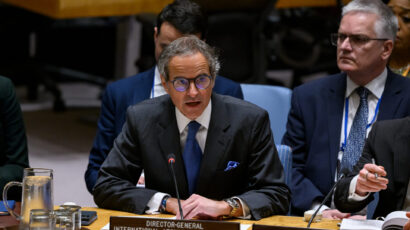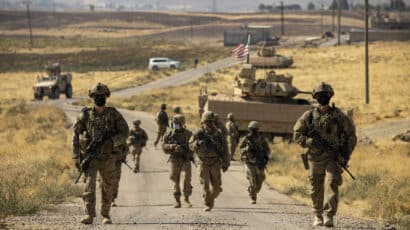Introspection and security
By Lu Yin, January 30, 2015
All participants in this roundtable agree on one point—that nuclear weapon states need to modernize their arsenals. But Eugene Miasnikov and I diverge from our colleague Matthew Kroenig in important ways. Miasnikov and I, in line with traditional approaches to arms control and disarmament, favor a balance between modernization and arsenal reductions. In other words, we seek ways to make modernization and disarmament compatible.
Kroenig demonstrates excellent argumentation skills, but I dispute his view that the United States needn’t restrict its nuclear modernization plans or de-emphasize nuclear weapons in its national security strategy. Kroenig sees complete disarmament as "fantasy," and believes that "the United States must maintain a robust nuclear posture and fully modernize its nuclear forces." He even argues that the United States, if necessary, must summon "the political will to build new capabilities to meet new demands."
But Kroenig’s views conflict with the reality that the United States doesn’t need a large nuclear arsenal as much as in past decades. The United States enjoys unequaled strength in conventional military capacities. Washington’s advanced strategic conventional weapons, including those under development through the Prompt Global Strike program, can function both as a deterrent and as a means of wreaking mass destruction on an adversary—without presenting the moral dilemmas that would accompany the use of nuclear weapons.
It is partly for these reasons that the United States has already, to a certain extent, de-emphasized nuclear weapons in its security strategy. The 2010 US Nuclear Posture Review placed new limits on the circumstances under which the United States would contemplate using nuclear weapons. It asserted that no new nuclear warheads would be developed. Yet Kroenig remains a strong advocate of upgrading the US nuclear arsenal, without limits, and he continues to regard nuclear weapons as the ultimate instruments of military power.
Not that Kroenig is obliged to agree with his nation’s president, but Kroenig’s support for unbridled nuclear modernization stands in marked contrast to the Obama administration’s goal of establishing a world free of nuclear weapons. Obama, in his 2009 Prague speech, not only expressed this goal but also committed himself to continuous reductions in nuclear arsenals and to continuing disarmament negotiations with Russia. Perhaps Kroenig would dismiss Obama’s approach as "fantasy," but even US national security figures such as Henry Kissinger, George Shultz, Sam Nunn, and William Perry subscribe to largely the same goals.
That said, I very much concur with Kroenig’s view that general disarmament will require that the root causes of international insecurity be eradicated. What Kroenig doesn’t take into account, however, is that US desire for complete security is itself a force undermining global security. As Kissinger wrote in 1959, "The stability of an international system depends on the degree to which it combines the need for security with the obligation of self-restraint. … [T]o seek security entirely through physical domination is to menace all other countries. For absolute security for one country must mean absolute insecurity for all others."
Kroenig argued in his Round Two essay that Miasnikov and I "could have demonstrated greater introspection" in what we had written to that point. I would reply that the need for introspection cuts both ways. Successful mechanisms for nuclear arms control, disarmament, and nonproliferation require that all nuclear-armed nations participate actively in these processes. So, as I’ve written before, the United States (along with Russia) should set an example for other countries—including China, of course—and lead the world toward the elimination of nuclear weapons. In that direction lies an achievable, sustainable path toward increased global security.
Topics: Nuclear Weapons
Share: [addthis tool="addthis_inline_share_toolbox"]














